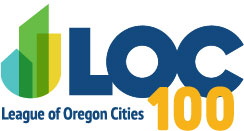Contact
Jim McCauley, Legislative Director
jmccauley@orcities.org
Shelter Resources
Sheltered Homelessness refers to people who are staying in emergency shelters, transitional housing programs, or safe havens. The 2018 Oregon statewide Housing Inventory Count (HIC) reported 4,174 permanent emergency shelter beds. The Oregon Statewide Shelter Study (2019) found that to ensure no one remains unsheltered, an estimated 5,814 additional beds are needed. No one type of shelter fits for all communities, or for all people who are unsheltered.
Emergency shelters play a critical role in ending homelessness. Effective shelters should embrace a Housing First approach, offer immediate and low-barrier access to anyone facing a housing crisis, and measure shelter performance in order to improve results. Providing low barrier shelter means that communities should offer a range of effective models of emergency shelter and other temporary accommodations (see "The Five Keys to Effective Emergency Shelter" infographic below).
Siting Shelters
Locating shelters for people experiencing homelessness can be difficult due to neighborhood opposition, and can take years. Oregon HB 2006 (2021) requires local governments to approve an application for an emergency shelter regardless of state or local land use laws, if the application meets specific approval criteria outlined in the bill, until July 1, 2022. HB 2006 also expanded state law to enable cities to allow overnight vehicle camping in more locations.
Who is Served by Shelters?
Who is Not?
Participants in the shelter study’s focus groups and stakeholder interviews, as well as respondents to the online surveys and webinars, reinforced concerns about equal access to emergency shelters. The particular groups identified as underserved varied across geographic regions included people of color, persons who do not have documentation of citizenship, families (especially when one parent is male), youth, and people who are LGBTQ.
Types of Shelter
Seasonal/Emergency
A facility with the primary purpose of providing temporary shelter for people experiencing homelessness. “Winter” shelter includes beds that are open during the fall, winter, and spring, and are open night after night, no matter the forecast. “Inclement Weather" or "Warming” shelter describes additional shelter beds that open when severe weather hits to keep unsheltered people safe from extreme heat, cold, or unsafe air quality due to wildfire smoke.
Congregate Shelters
Operation of congregate shelters, where a number of people gather in close proximity for either a limited or extended period of time, were significantly impacted by CDC requirements to help reduce transmission of COVID-19. Congregate shelter doesn’t work for everyone.
Navigation Centers
Navigation centers are low-barrier, operate 24/7, and provide intensive case management to connect people to public benefits, health services, and permanent housing, through a Housing First philosophy. In 2021, the Legislature included funding in HB 5042 to support navigation centers in specific communities around the state.
Motel Shelter
The 2020 Oregon Legislature allocated a total of $75 million for Project Turnkey, to acquire motels/hotels for use as non-congregate shelter for people experiencing homelessness or at-risk of homelessness. The investment grew Oregon’s emergency shelter capacity by 20%, with 865 new units across 13 counties.
Capeco “Promise Inn” - Homeless Shelter & Transitional Housing
Safe Parking Programs
Safe Parking programs provide safe and legal places to park, stabilize and connect to resources for people who are living in their vehicles. Located in the parking lots of churches, businesses, and on public or private land with permission of the owners and access to bathrooms and trash removal.
Eugene - Overnight Parking Program
Medford - Vehicle Camping Ordinance
- OPB: Medford's First Urban Campground...
- OPB Think Out Loud: Medford Changes Rules for Vehicle Camping
Pallet Shelters/Urban Campgrounds/Tiny Homes
Communities across Oregon are creating alternatives to unsheltered homelessness by siting and building rapid response shelter “villages” or allowing tent camping with basic services.
Opportunity Village (Eugene) and Cottage Village (Cottage Grove)
Additional Resources
Share Your City's Resources
Does your city have example homeless resources to share with other cities? Email us and we'll add them to the list!
Email us

